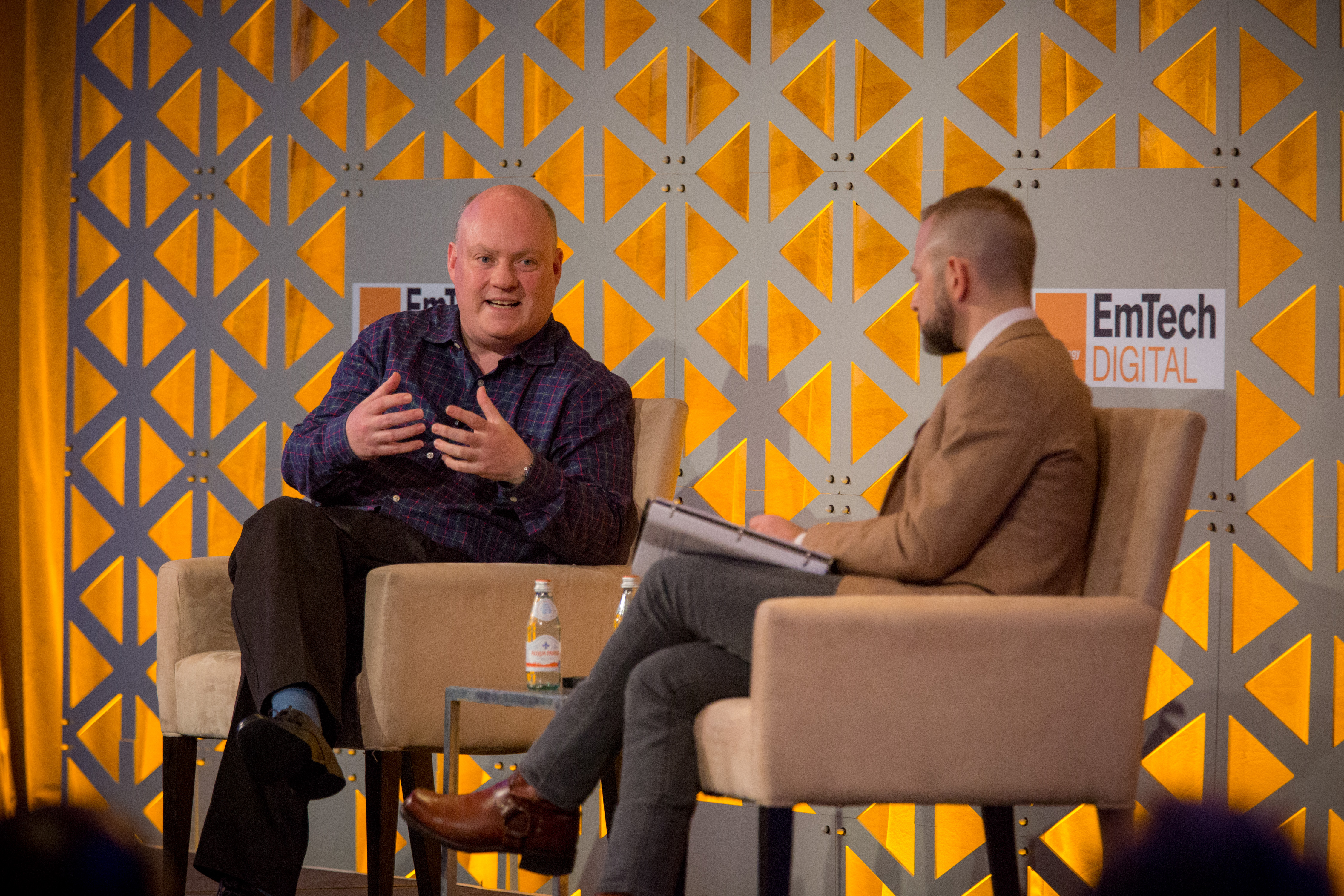Adobe bets that AI tools can foster real creativity

Artificial intelligence could make it a lot simpler to edit photos and videos—but could creativity get lost in the shuffle?
Artificial intelligence is increasingly used to create art, such as images or music composed with machine learning. On Monday at MIT Technology Review’s yearly EmTech Digital conference in San Francisco, Gavin Miller, head of Adobe Research, explored this question, showing off videos of several AI-using prototypes from software maker Adobe’s Creative Intelligence Lab.
One of the prototypes, called Project Scene Stitch, illustrates how an algorithm could be used to replace ugly buildings in the foreground of a photo—a user would enter some key words, and the algorithm would find another image that would fit naturally into the space the user wanted to fill.
Another prototype, Project Sky Replace, uses a deep-learning algorithm to remove the sky in a photo and replace it with other images of skies that match the one in the photo geometrically. It also considers the color balance of the foreground image and matches the foreground color to the sky color, making it possible to turn a photo of, for instance, the Eiffel Tower on a cloudy day into a properly lit sunset image.
While the tools could be seen as antithetical to the creative process, Miller noted that they could add to overall creativity by freeing people from a lot of tedious work artists have to do today.
“The hope is by automating some of that work [with] AI we can free up more time for being genuinely creative,” he said.
He also suspects that as AI becomes a larger part of the creative process artists may move from working in a single style to switching from style to style, a la Picasso.
“I think it will be a more beautiful and entertaining world as a result,” he said.
Deep Dive
Artificial intelligence
Large language models can do jaw-dropping things. But nobody knows exactly why.
And that's a problem. Figuring it out is one of the biggest scientific puzzles of our time and a crucial step towards controlling more powerful future models.
Google DeepMind’s new generative model makes Super Mario–like games from scratch
Genie learns how to control games by watching hours and hours of video. It could help train next-gen robots too.
What’s next for generative video
OpenAI's Sora has raised the bar for AI moviemaking. Here are four things to bear in mind as we wrap our heads around what's coming.
Stay connected
Get the latest updates from
MIT Technology Review
Discover special offers, top stories, upcoming events, and more.